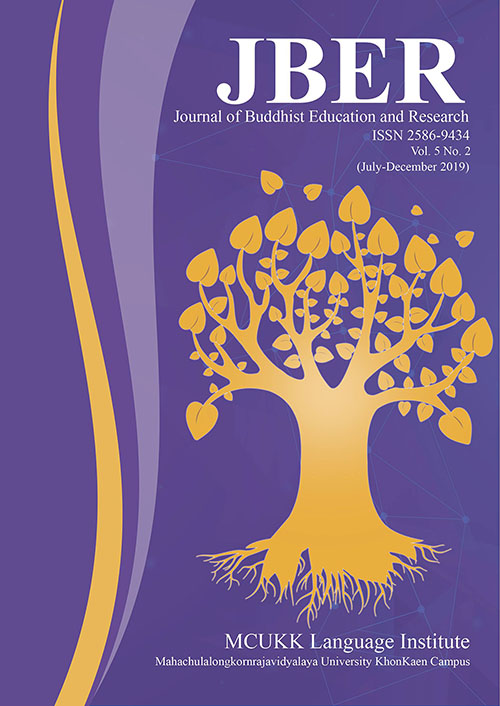THE POWER RELATIONS IN AGRICULTURAL LAND USE RIGHT TRANSFERS UNDER THE EXISTING CHINA RURAL DEVELOPMENT CONTEXT
Keywords:
Chinese rural development, agricultural land use right transfer, power relations, negotiationAbstract
The objectives of this research were: 1) To understand the rural development contexts for agricultural land use right transfer policy of China in the previous years. 2) To analyze the power relations patterns in the agricultural land use right transfer process in Shanpotian village in Yaoan county, Yunnan province. A qualitative methodology is utilized by applying documented research, focus group discussions and in-depth interviews with 45 farmers. The results of the study show that the ongoing agricultural land use right transfer is promoted and encouraged by the Chinese government’s rural development strategies under the background of industrialization and urbanization. In a transfer process, powerful groups will attempt to use their social, economic, formal, and informal powers to influence the transfer process, to gain more benefits from the negotiation; and the poorer groups will always be the disadvantages. Thus, public interests should be more wellconsidered by the government.
References
Cai, F. (2001). The Labour Migration in China; Chinese Rural Labour: 2001;Volume6, Beijing, China.
Chen,H.;Li,Y.;Shang,C. (2007). Economic Analysison “DaigengFarmers” A Case Study in Tiechang Village of Huizhou, Guangdong Province. J. Huazhong Norm. Univ. (Humanit. Soc. Sci.),3,28–31.
Chesters, G. (2003). Ideas about Power: Representation and Counter Power; New Internationalist: US.
Chinese Agricultural Law; Chinese Science Press: 2000, Beijing, China.
Dahl, A.R. (1961). Who Governs; Yale University: New Haven, CT, USA.
Du,W.;Huang,M.;Huang,S. (2010). A Survey of Theoretical Studies of Rural Land Circulation and Its Reform Proposals. J. Sichuan Norm. Univ. (Humanit. Soc. Sci.), 4,55–60.
Falbo, T.; Peplau, L.A. (1980). Power strategies in intimate relationships. J.Personal. Soc. Psychol,38,618.
Fan, L. (2011). The Planned Evaluation of Rural Land Transfer; Chinese Agricultural Science Press: Beijing, China.
Foucault, M. (1966). The Order of Things; University of Tunis: Tunis, Tunisia.
Foucault, M. (1975). Discipline and Punish; University of Tunis: Tunis, Tunisia.
French,J.R.P.;Raven,B. (1959). The bases of social power. In Studiesin Social Power; Cartwright, D.,Ed.; University of Michigan Press: AnnArbor,MI, USA.
Galbraith, J.K. (1983). The Anatomy o fPower. UK.
Giddens, A. (1971). Capitalism and Modern Social Theory. An Analysis of the Writings of Marx, Durkheimand Max Weber; Cambridge University Press: Cambridge, UK.
Gordon, C. (1980). Forward. In Power/ Knowledge; Foucault, M.,Ed.; Pantheon Books: NewYork, NY,USA.
Gu,S.;Wang,X.;Lu,J.;Wang,Y.;Zhang,X. Land Moving in Rural Areas, its Domino Effect and Innovation.Chin. J. Agric. Resour. Reg. Plan. 2009,1,1–7.
Handgraaf, M.J.; VanDijk, E. (2008). Less poweror powerless? J. Personal. Soc.Psychol.,95,1136.
Hanjun. (1995). The Rural Reform in China; Chinese Rural Economy: Volume2, Beijing, China.
He,L.;Yang,Q. (2015). The Public Goods Supply and Community Organization Under the Existing Land System. Econ. Manag,62–67, volume 1.
Henretty, A. (2008). How Power Shapes Executive Choice; Kellogg School of Management, Northwestern University: Thailand.
Jiang,A.; Chen, H. (2007). A Review of Research on Share Cooperative System of Rural Land. Soc. Sci. Res,3,40–60.
Kelly,E. (2010). Everyday Experiences of Power. Ph. D. Dissertation, University of Tennessee, Knoxville, TN, USA.
Liu, R. (2012). The Study of Chinese Rural Land Transfer System: From the View of Benefits Sharing; Economic Management Press: Beijing, China.
Gee, T. (2011). Counter Power: Making Change Happen (Book Review); The Ecologist; NewInternationalist : US.
Mou,Y. (2006). The Negative Impact of Agricultural Land Right Transfer; The Chinese Rural Reform:,Beijing,China;Volume7.
Mou,Y.;Wen,T. (2013). The Challenge of Agricultural Land Right Transfer; The Chinese Rural Reform, Nanjing, China;Volume8.
Paula,P.; Kerry, D. (1993). Social powerbases: Ameta-analytic examination of interrelationships and outcomes.J. Appl. Soc. Psychol,23,1150–1169.
Qi, E. (2014). The Study of The Changing History of Rural Land Management Policyin China. Tianjing Norm. Univ. J. (Soc. Sci.),57–61, volume 1.
Raven, B. H. (1998). Conceptualizing and measuring power/interaction model of inter personal influence .J. Appl. Soc. Psychol,28,307–332.
Schein, L. E. Greiner, V. E. (1989). Power and organization development: Mobilizing power to implement change. Acad. Manag. Exec,3,159–161.
Tan, L. (2013). Promote Characteristic Agricultural Development Through Rural Land Transfer.Chin. Collect. Econ. J,40–44.
Gee,T. (2011). Counter Power: Making Change Happen; Worldchanging: Oxford,UK.
Tsang. (1995). The Chinese Urbanization and Industrialization Process; The Chinese Science Press: Beijing, China.
Wen, G. (2008). Chinese Rural Responsibility System; Chinese Rural Issue, Beijing, China;Volume8.
Wen,T. (2016). The Modern Chinese Agricultural Development; Chinese Rural Reform, Beijing, China; Volume3.
Zen, Z. (2014). The Study of Rural Land Transfer Under the Background of Urbanizationin China. Huazhong Norm. Univ. J. volume 1, page12-13.
Zhou, C. (1996). The Collective Rural Land Right; Chinese Reform: Beijing, China; Volume12.
Zhou, K. (2012). The Study of Rural Land Transfer Modelsin Sichuan Province. South-WestFinanc.Econ.Univ.J, volume 2, page 20.
Zhu, G. (2007). The Social Aspects of Agricultural Land Right; The Collective Economy: Beijing, China;Volume10.





